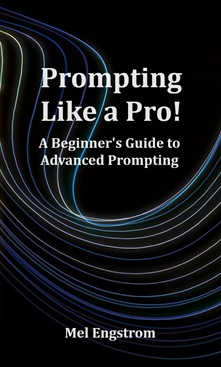Imagine a world where creating, communicating, and learning are effortlessly enhanced by artificial intelligence. In this landscape of innovation, ChatGPT shines as a beacon of possibility.
Yet, as we marvel at its capabilities, we can’t ignore the ethical debates it ignites. Does utilizing ChatGPT cross into the realm of plagiarism? This blog post explores the nuances of this question, providing clarity on the ethical and practical implications of using AI-generated content.
Understanding Plagiarism
Before diving into the specifics of whether using ChatGPT is plagiarism, it’s important to define plagiarism. Plagiarism is the act of using someone else’s work, ideas, or words without proper attribution, presenting them as your own. It can take many forms, including:
- Direct plagiarism: Copying text verbatim without citation.
- Mosaic plagiarism: Piecing together ideas or phrases from multiple sources without acknowledgment.
- Self-plagiarism: Reusing your own previously published work without permission or citation.
Plagiarism is widely considered unethical because it undermines originality, intellectual honesty, and trust. In academic, professional, and creative settings, it can lead to severe consequences, such as failing grades, job loss, or legal action.
How ChatGPT Works
To answer the question “is using ChatGPT plagiarism?”, we need to examine how it generates content. ChatGPT is trained on vast amounts of text data from books, articles, websites, and other publicly available sources. It uses this data to identify patterns and generate responses based on user prompts. Importantly, ChatGPT does not “copy and paste” text from its training data. Instead, it creates unique combinations of words and phrases to produce original responses.
However, because ChatGPT’s training data includes existing human-created content, there’s a possibility that its outputs may resemble or indirectly reference specific sources. This raises questions about originality and attribution.
Is Using ChatGPT Plagiarism?
The answer to this question isn’t black and white. It depends on how the AI-generated content is used and the context in which it’s presented. Let’s explore both sides of the argument.
Arguments for Considering It Plagiarism
- Lack of Original Thought: ChatGPT doesn’t “think” or create ideas independently. Its responses are derived from patterns in its training data, which may include copyrighted or proprietary information.
- Verbatim Reproduction: While rare, ChatGPT can sometimes produce text that closely matches existing content, especially if the prompt is highly specific.
- No Attribution: If users present AI-generated content as their own without acknowledging ChatGPT’s role, it could be seen as misleading or dishonest.
Arguments Against Considering It Plagiarism
- Unique Outputs: ChatGPT generates text that is not directly copied from any single source. Each response is a unique combination of words and ideas.
- User Responsibility: The ethical burden lies with the user, not the tool. If users modify, expand, or properly attribute AI-generated content, it can be used responsibly.
- Tool, Not Author: ChatGPT is a tool, much like a calculator or a search engine. Its outputs are meant to assist, not replace, human creativity and effort.
Ethical Considerations When Using ChatGPT
Is using ChatGPT plagiarism? It can be. But here are ways to avoid trouble.
Using ChatGPT responsibly requires careful consideration of ethical principles. Here are some key points to keep in mind:
- Transparency: Be upfront about using AI-generated content, especially in academic or professional settings.
- Attribution: When appropriate, cite ChatGPT as a source. For example, in academic papers, you might include a note explaining how the tool was used.
- Originality: Use ChatGPT as a starting point for ideas, not a substitute for your own work. Always review and edit its outputs to ensure they align with your voice and intentions.
Best Practices for Using ChatGPT Responsibly
To avoid ethical pitfalls and fully complete our exploration of whether or not using ChatGPT is plagiarism, follow these best practices when using ChatGPT:
- Review and Edit: Never use AI-generated content verbatim. Always review, refine, and personalize it to ensure it meets your standards.
- Cite Your Sources: If you use ChatGPT to generate content, acknowledge its contribution. This is especially important in academic or professional contexts.
- Avoid Over-Reliance: Use ChatGPT as a tool to enhance your work, not replace your creativity or critical thinking.
Legal and Institutional Perspectives
The rise of AI tools like ChatGPT has prompted institutions to rethink their policies on plagiarism and originality. They are less likely to take a hard stance these days on if using ChatGPT is plagiarism.
- Academic Institutions: Many schools and universities are updating their honor codes to address AI-generated content. Some prohibit its use entirely, while others allow it with proper attribution.
- Copyright Issues: Currently, AI-generated content exists in a legal gray area. In most jurisdictions, copyright protection is granted only to human creators, raising questions about ownership of AI-generated text.
- Industry Standards: In professional settings, transparency is key. Companies are increasingly requiring employees to disclose the use of AI tools in their work.
Final Thoughts
You’re navigating the ethical maze of AI tools, pondering whether using ChatGPT ventures into the realm of plagiarism. So, is using ChatGPT plagiarism? Fear not, the answer lies not in the tool itself but in the hands that wield it.
While ChatGPT doesn’t copy content verbatim, your ethical compass guides how you utilize it. Consider embracing the role of curator by reviewing, refining, and crediting AI-generated content to harness ChatGPT’s power ethically and respectfully.
In this ever-evolving era of AI, you can stay protected if you tread forward with mindfulness and honor. Whether you’re a student, professional, or creative soul, remember this: AI serves as a companion to elevate your creations, not to overshadow your unique voice and originality.
You got this.
Love,


